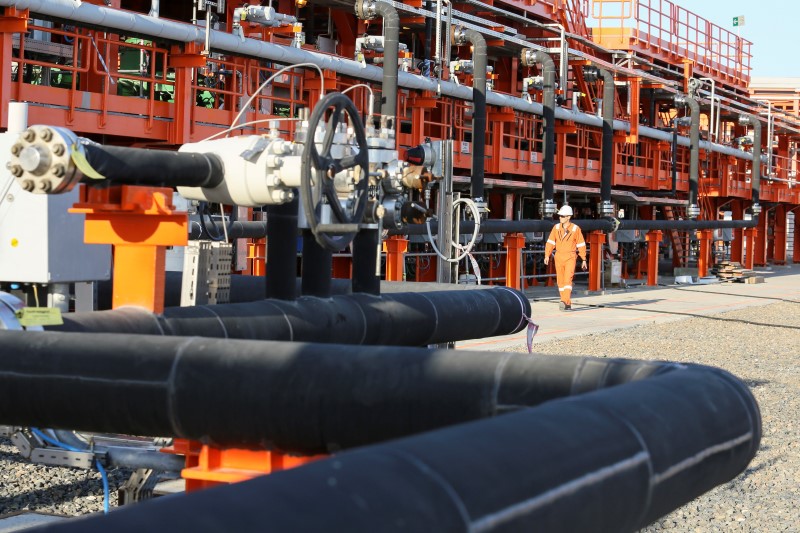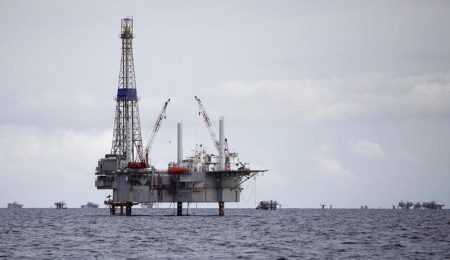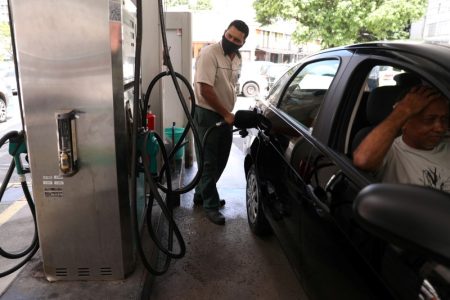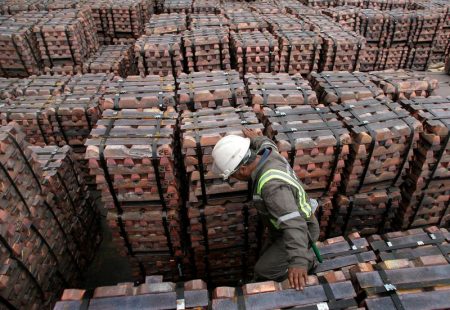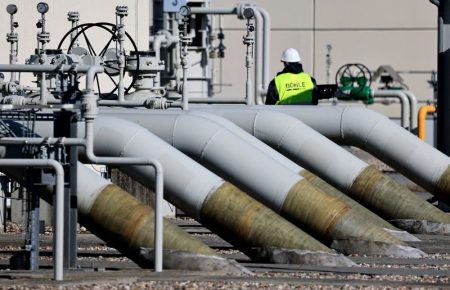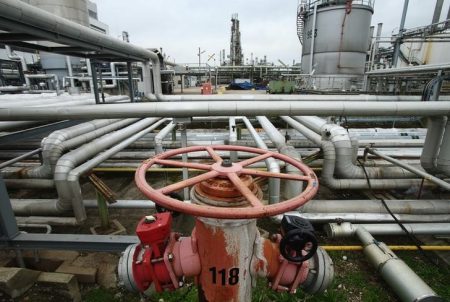By Stephanie Kelly
NEW YORK (Reuters) -Oil prices rose 3% on Thursday, extending the previous session’s gains, boosted by a weaker dollar and as the International Energy Agency (IEA) lifted its oil demand forecast for next year.
Brent futures settled $2.35 higher, or 3.2%, at $76.61 a barrel. U.S. West Texas Intermediate (WTI) crude climbed $2.11, or 3%, to $71.58.
The market has turned around after dropping to hit its lowest in nearly six months during Wednesday’s session.
World oil consumption will rise by 1.1 million barrels per day (bpd) in 2024, the IEA said in a monthly report, up 130,000 bpd from its previous forecast, citing an improvement in the outlook for the U.S. and lower oil prices.
The 2024 estimate is less than half the forecast of the Organization of the Petroleum Exporting Countries (OPEC).
Prices also got a boost as the dollar weakened after the U.S. Federal Reserve on Wednesday signaled lower borrowing costs for 2024.
The dollar fell to a four-month low on Thursday after the U.S. central bank indicated interest rate hikes have likely ended and lower borrowing costs are coming in 2024.
“Obviously the mood for oil has changed dramatically. One of the major catalysts for shaking volatility out of market was the Federal Reserve,” said Phil Flynn, an analyst at Price Futures Group.
Lower interest rates reduce consumer borrowing costs, which can boost economic growth and demand for oil. A weaker dollar makes oil less expensive for foreign purchasers.
The European Central Bank, meanwhile, pushed back against bets on imminent cuts to interest rates on Thursday by reaffirming that borrowing costs would remain at record highs despite lower inflation expectations.
Oil investors will usher in 2024 with gnawing concerns about slowing economic growth and oversupply, while simmering tensions in the Middle East could spark price volatility.
Benchmark Brent has averaged around $80 a barrel this year. A Reuters survey of 30 forecasts from economists and analysts sees averaging $84.43 a barrel in 2024.
Read the full article here
